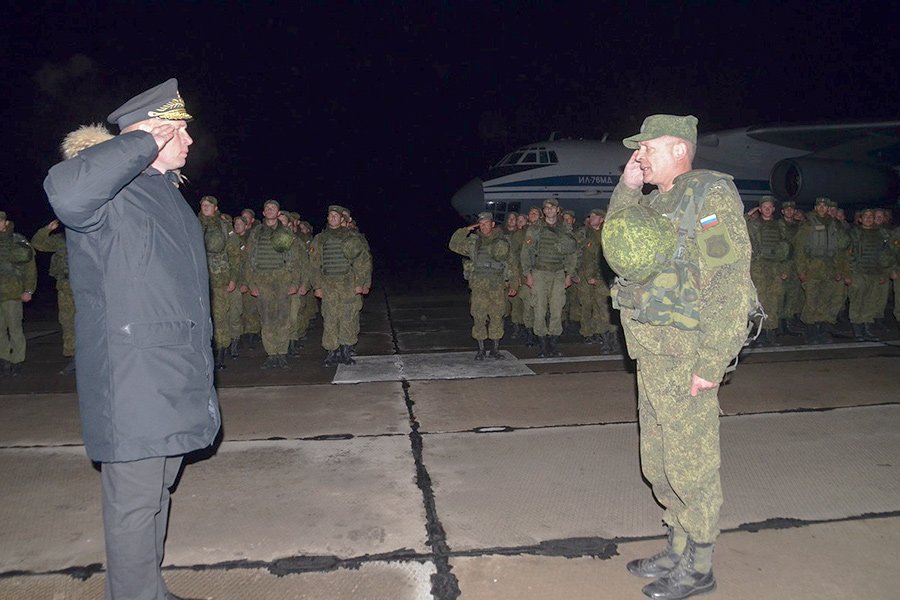Several hundred wounded militants and their families, from opposing sides of the war in
, were evacuated from besieged areas on Monday in a complex deal that involved busing and flying them to neighboring countries.
The deal, carried out under the auspices of the
and the International Committee of the Red Cross, was the latest attempt to strike local agreements to calm the conflict before planned peace talks next month.
The exchange allowed wounded fighters and civilians to leave areas where they had been trapped: in Zabadani, the last rebel-held, mostly Sunni town along the Lebanese border; and the isolated, government-held, mostly Shiite towns of Fouaa and Kfarya in Idlib Province, which is held mainly by Sunni Islamist insurgent groups.
The logistics seemed to come off smoothly, despite the challenges of coordination and moving through hostile territory and crossing the borders of
, which backs insurgents in Syria, and
, whose most powerful faction, the Shiite militant group
, supports the Syrian government of President
.
Yet deep questions remained about the deal’s context and implications. It was unclear what would become of the many civilians and fighters remaining in the towns, as well as in Madaya, a town neighboring Zabadani that is besieged by pro-government forces, and was not included in the deal.
Nisrine, a schoolteacher reached in Madaya, said she was thrilled that her husband, Ahmad, was among the fighters evacuated from Zabadani to Turkey for treatment, but concerned about what would happen to her and their 9-year-old son.
“Happiness is mixed with heartbreak,” she said. “We’re not together.” She added that her husband was “delighted but worried about us at the same time; we are still besieged and facing starvation.”
Southern Beirut, where Hezbollah is popular, was in a celebratory mood on Monday night as fighters arrived from the Shiite villages. Hezbollah has sent thousands of fighters to Syria and the organization’s flags lined the airport road.
There were concerns that the agreement could eventually amount to a swap of ethnic populations, moving Shiites from Fouaa and Kfarya to friendlier territory in Lebanon or government-held parts of Syria, and moving Sunnis to Turkey or to insurgent-held areas of Syria.
Population exchange was not officially part of the deal, which was initially struck between Hezbollah and rebels in Zabadani months ago, only to be thrown into turmoil by Russia’s unexpected military intervention on the side of Mr. Assad.
In any case, that the complex operation could happen at all was impressive after years of hostility and broken accords.
More than 300 people left Fouaa and Kefraya on buses to Turkey, while 123 left Zabadani for Lebanon. The convoys were escorted by ambulances and Red Cross and Red Crescent workers.
After medical checks, the rebels evacuated to Lebanon were flown to Turkey, and the pro-government fighters evacuated to Turkey were flown to Lebanon. The wounded are to be treated in hospitals, and then they will be allowed to enter Syrian territory that is presumably friendlier for them.
The deal comes amid efforts to restart talks between the Syrian government and its opponents, set to start next month but without a clear basis for progress. The United Nations envoy, Staffan de Mistura, has rested his hopes on a set of local cease-fires he hopes could build to a nationwide truce.
But those efforts have come amid continuing atrocities: heavy bombardment of civilian areas by government and allied warplanes, and indiscriminate attacks on civilians by insurgents.
Earlier this month, a local cease-fire ended years of standoff in Waer, an outlying area of the central city of Homs, the last pocket of resistance in that city that had once been a hub of the rebellion that began in 2011.
Fighters not wanting to observe the truce were given safe passage to the north. Those willing to comply remained with many of their weapons, with additional phases of the deal to be carried out if the cease-fire holds.
Another deal was supposed to take place in southern Damascus but was put off after an airstrike on Friday
.
 more of these at:
more of these at:


